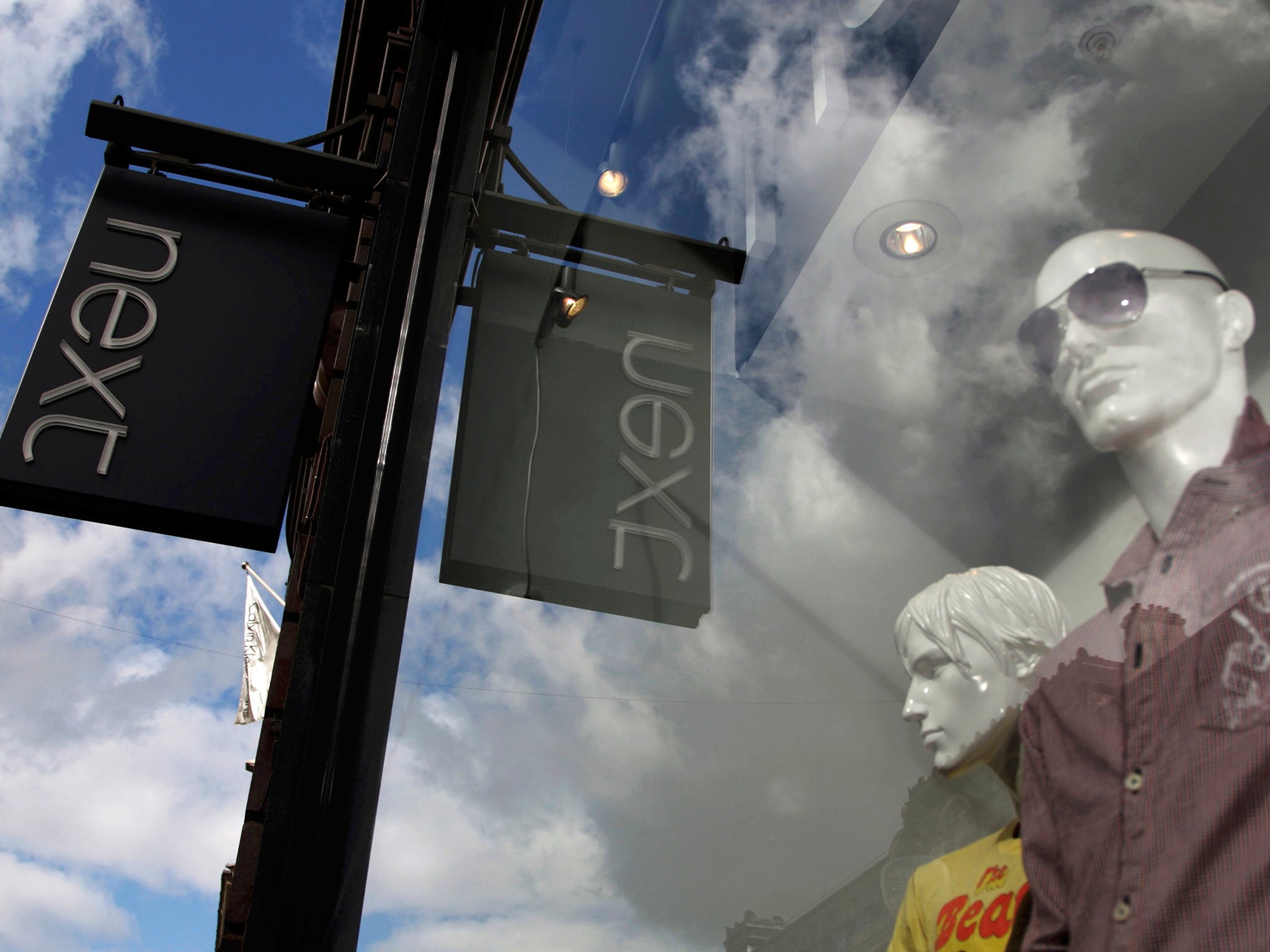High street storm: what happens Next?
The boss of the retail sector bellwether has sounded an ominous warning about the strength of the British consumer. And other shopping heavyweights, from M&S to Primark, have been marked down too

High-street retailers beware: this year is going to be bad. That’s if Lord Wolfson, the Tory peer and boss of Next, is to be believed. He sent shivers through the sector with a warning that “the year ahead may well be the toughest we have faced since 2008”.
“Uncertainty in the global economy” and slowing wage growth were the reasons for the alarm, which dragged Next shares down by as much as 15 per cent, giving the company its worst day on the stock market since March 1998.
It rivals went south with it: Marks & Spencer closed down 5 per cent, while Primark owner Associated British Foods and Debenhams slid by 5.5 per cent and 3 per cent respectively.
“The outlook for consumer spending does not look as benign as it was at this time last year. [Then] all indicators – output and growth in real earnings – began to tail off as the year progressed,” Lord Wolfson explained as the company published its full-year results. “We’re not economists but our instinct is that we are looking at some sort of consumer slowdown.”
Next, known for its cautious approach, cut its sales forecast for full-price goods for the 2016-17 year. It now expects sales growth of between 1 per cent and 4 per cent – compared with its previous guidance of 1 per cent to 6 per cent – and said retail margins will also be squeezed.
Lord Wolfson said clothing was likely to be the hardest hit as Britons splashed out more on eating out, travel and leisure – the areas that suffered most during the credit crunch.
Official retail sales figures for February lent some support to his thesis. Those sales were down 0.2 per cent last month but the clothing and footwear category fell twice as fast.
Analysts, however, were less concerned with Next’s crystal ball gazing and more focused on the well-being of what was once considered the jewel in the retailer’s crown – the Next Directory. Sales at the division, a leading online operation far before any of its main competitors, still expanded, but at a rate of 7.7 per cent versus the previous year’s 12.1 per cent.
The company said it was aware of the challenges faced by Next Directory: competitors catching up with it on delivery and warehousing; more customers shopping online; and a decline in the number of shoppers buying on credit. In 2010 as many as 95 per cent of Directory orders went through its lucrative credit scheme, whereas in 2015 the share was 84 per cent. A further 5 per cent decline is forecast for this year.
It plans to deal with the first two issues through better websites and mobile apps, narrower delivery windows, the collection and return of products through third-party parcel shops, more online and email marketing, and by “rationalising” printed material. Lord Wolfson said some of those initiatives should start paying off by July. The company insists it has no intention of killing off the catalogued.
Next has addressed the credit issue by reducing minimum payments and lowering interest rates, and it will soon make it easier to manage accounts online. But it admitted this will be its “toughest challenge” and it “will take years for our credit customer base to stabilise”.
Charlie Huggins, retail analyst at Hargreaves Lansdown, said he hoped those improvements would pay off given Next’s strong track record – but “it’s fair to say its crown has slipped”.
Haitong Research’s Tony Shiret, meanwhile, advised investors not to expect too much from the retailer for the foreseeable future: “We know that Directory is not fit for purpose and that it will take some time before it is reset. There is clearly a risk that even after this it will be playing catch-up.
“We expect this to overhang prospects in 2017-18 as well, so in our view investors should expect minimal or even negative earnings growth for two years,” he added.
The Directory slowdown overshadowed the fact that Next’s annual figures met expectations, despite a poor Christmas plagued by stock issues – a self-inflicted problem it has since sought to tackle – and the mild winter. Sales rose 3 per cent to £4.1bn in the year ending January, while underlying pre-tax profit was up 5 per cent at £821.3m. That figure was ahead of an earlier prediction for £817m.
Next, which last year returned £568m to shareholders, acknowledged it has an uphill battle ahead of it, but still hiked the full-year dividend by 5 per cent to 158p and stood by its strategy.
“In many ways we have more to do than ever before, with complex challenges to our working practices across product, marketing and systems,” Lord Wolfson said.
“It may well feel like walking up the down escalator, with a great deal of effort required to stand still.”
Join our commenting forum
Join thought-provoking conversations, follow other Independent readers and see their replies
Comments
Bookmark popover
Removed from bookmarks